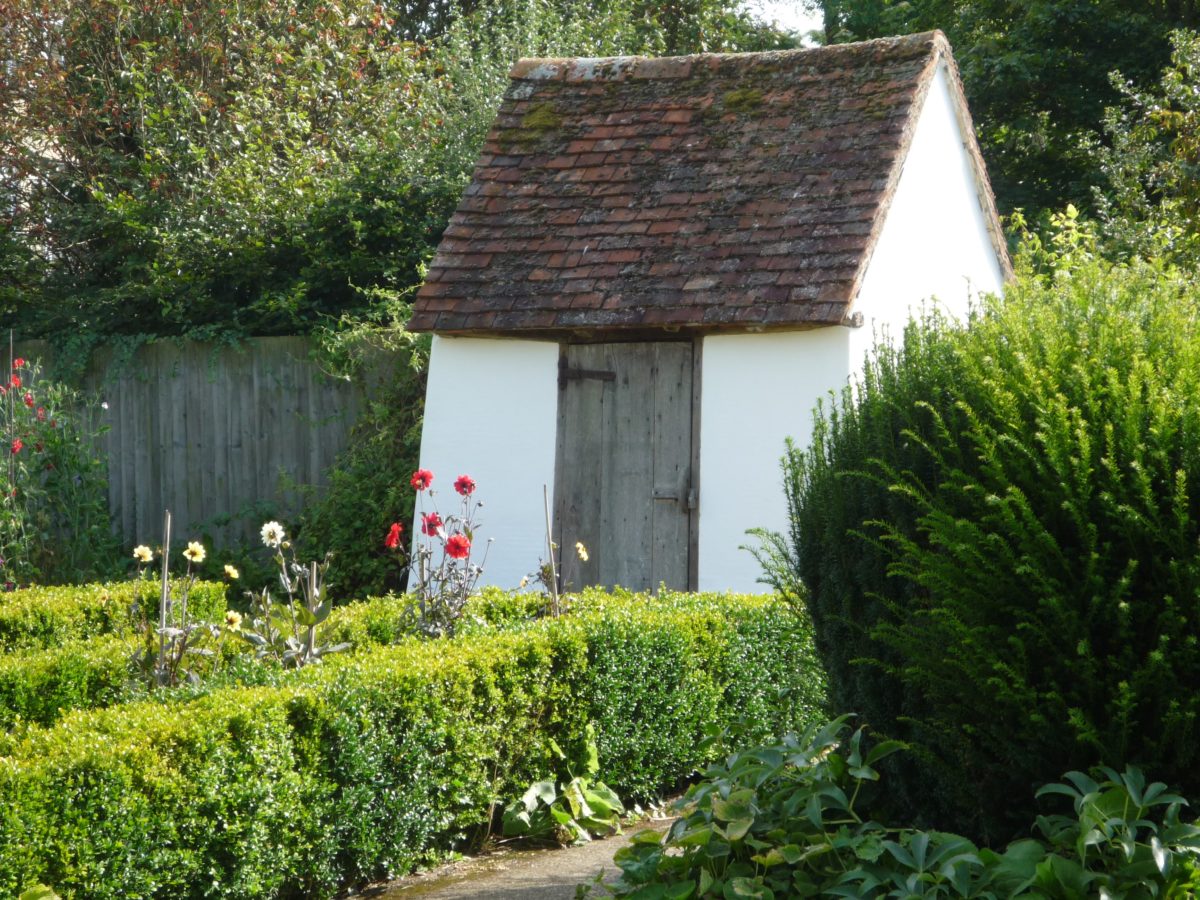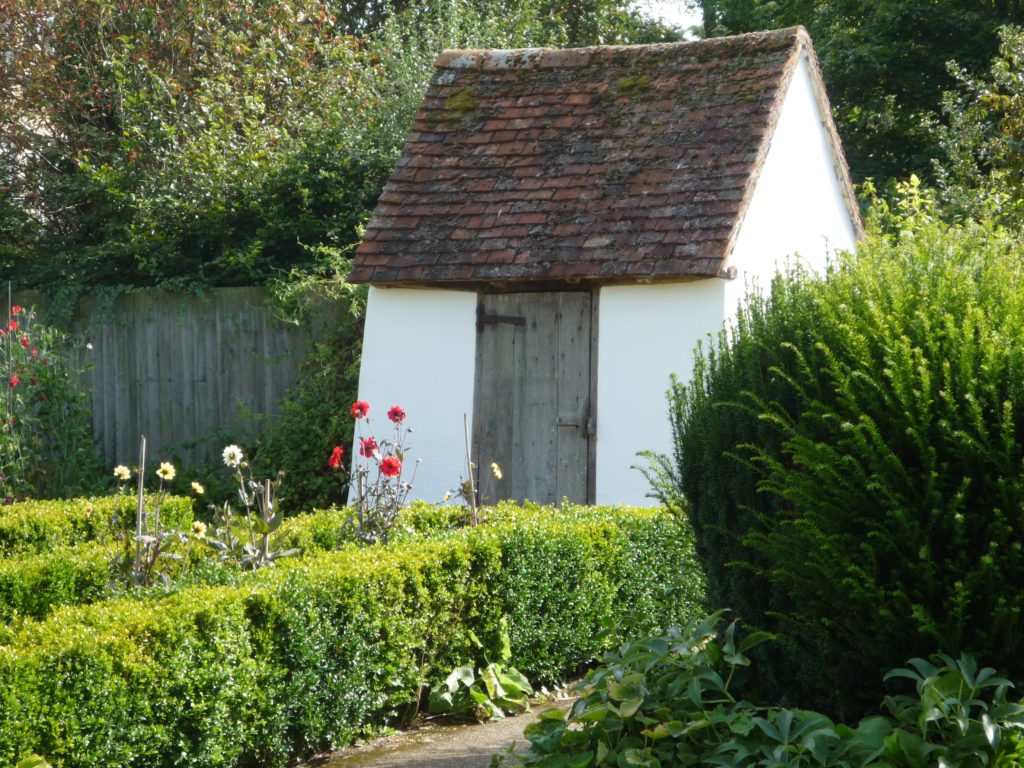Literature for quiet times

Alexandra Harris got together with Professor Kate McLoughlin, who is researching the history of silence, to think about texts that seemed particularly meaningful in the first weeks of lockdown and isolation.

William Cowper’s summerhouse in Olney
They recorded four short podcasts: on Shakespeare’s Sonnet 23, DH Lawrence’s ‘Silence’, a moment of pause in Virginia Woolf’s Between the Acts, and William Cowper’s defence of quiet home life in The Task.
Podcast 4, on William Cowper, is especially concerned with place. Cowper rarely travelled far from home, and much of his poetry considers what might be gained by attending seriously to domestic life and local surroundings.
The text discussed by Kate and Alex is from Book 3 of The Task:
How various his employments, whom the world
Calls idle, and who justly in return
Esteems that busy world an idler, too!
Friends, books, a garden, and perhaps his pen,
Delightful industry enjoyed at home,
And nature in her cultivated trim
Dressed to his taste, inviting him abroad—
Can he want occupation who has these?
Will he be idle who has much to enjoy?
Me, therefore, studious of laborious ease,
Not slothful; happy to deceive the time,
Not waste it; and aware that human life
Is but a loan to be repaid with use,
When He shall call His debtors to account,
From whom are all our blessings; business finds
Even here: while sedulous I seek to improve,
At least neglect not, or leave unemployed,
The mind He gave me; driving it, though slack
Too oft, and much impeded in its work
By causes not to be divulged in vain,
To its just point—the service of mankind.
He that attends to his interior self,
That has a heart and keeps it; has a mind
That hungers and supplies it; and who seeks
A social, not a dissipated life,
Has business; feels himself engaged to achieve
No unimportant, though a silent task.
A life all turbulence and noise may seem,
To him that leads it, wise and to be praised;
But wisdom is a pearl with most success
Sought in still water, and beneath clear skies.
Find the full series at TORCH | Oxford Research Centre for the Humanities